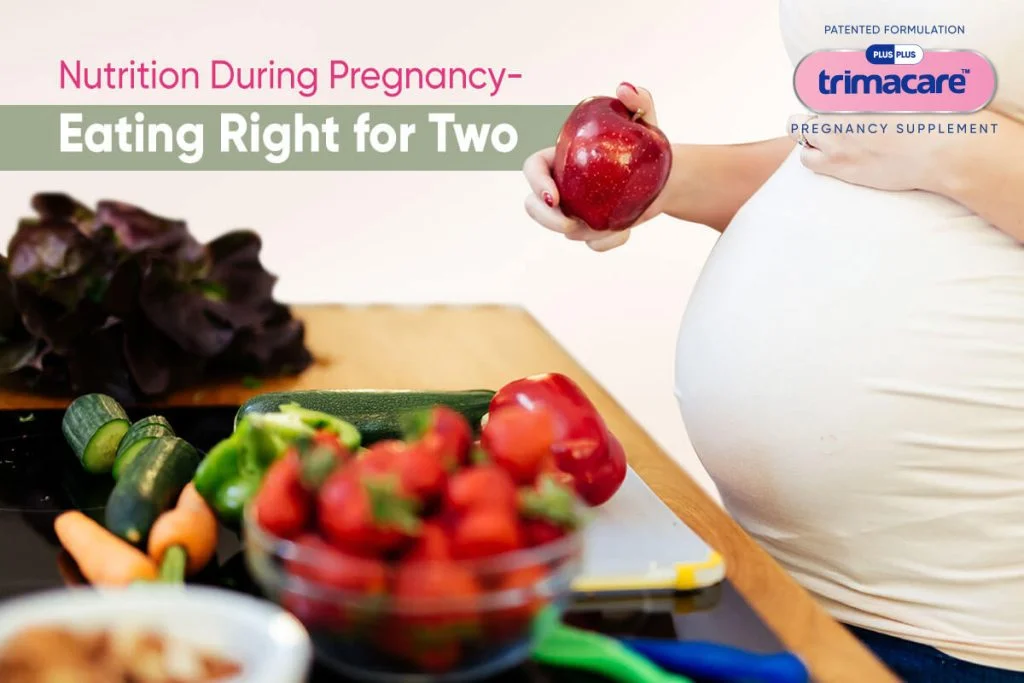Pregnancy is a special time in a woman’s life, and it is essential to make sure that both the mother and the developing baby are receiving all the nutrients they need for a healthy pregnancy. Trimacare is here to help expectant mothers ensure they are getting the right nutrition during pregnancy for a healthy baby and mom.
Critical Nutrition for Healthy Pregnancy
One of the most critical nutrition during pregnancy is folic acid, which can help prevent birth defects in the baby’s brain and spine. Women should aim to consume at least 400 micrograms of folic acid daily, either through their diet or through a prenatal supplement. Good food sources of folic acid include leafy greens, citrus fruits, beans, and fortified cereals.
Protein is another important nutrient during pregnancy, as it helps build the baby’s tissues and supports the growth of the placenta and uterus. Expectant mothers should aim to consume around 70 grams of protein per day, which can be found in foods such as chicken, fish, tofu, and dairy products.
Calcium is essential for building strong bones and teeth for the baby, and it is also important for the mother’s bones. Women should aim to consume around 1,000 milligrams of calcium per day, which can be found in dairy products, leafy greens, and fortified foods like orange juice.
Iron is necessary for the baby’s growth and for the mother’s increased blood volume during pregnancy. Women should aim to consume around 27 milligrams of iron per day, which can be found in meat, poultry, fish, beans, and fortified cereals.
Vitamin D is important for bone health and can also aid in the absorption of calcium. Expectant mothers should aim to consume around 600 international units of vitamin D per day, which can be found in fortified dairy products, fatty fish, and supplements.
Staying Hydrated
It is important to stay hydrated during pregnancy. Water helps transport nutrients to the developing baby and helps with digestion and prevents constipation. Women should aim to drink around 8-12 cups of water per day.
The Benefits of TrimacareTM
In addition to a balanced diet, Trimacare provides expectant mothers with a complete prenatal supplement that includes folic acid, iron, calcium, and other essential nutrients. TrimacareTM‘ formula is carefully balanced to meet the needs of both mother and baby, and it is designed to support a healthy pregnancy.
In conclusion, taking healthy nutrition during pregnancy is essential for both the mother and the developing baby. By consuming a variety of foods that are high in essential nutrients, and supplementing with Trimacare, expectant mothers can ensure they are providing the best possible start for their baby. Remember, during pregnancy, you are eating for two, and it is essential to make every bite count.
Frequently Asked Questions:
1: Can I continue to drink caffeinated beverages during pregnancy?
Caffeine consumption should generally be limited during pregnancy. Limit caffeine intake to 200 milligrams per day, or about one 12-ounce cup of coffee, according to the American College of Obstetricians and Gynaecologists.
2: Is it safe to consume fish while pregnant?
Yes, fish can provide essential nutrients like omega-3 fatty acids to pregnant women. However, choosing fish with low mercury levels, like salmon, shrimp, and catfish, over fish with high mercury levels, like swordfish and king mackerel, is crucial.
3: How many extra calories should I consume during pregnancy?
The specific number of additional calories required during pregnancy fluctuates relying upon factors like pre-pregnancy weight and movement level. In general, the second and third trimesters should consume 300 to 500 more calories per day.
4: Can I eat soft cheeses while pregnant?
There is a possibility that soft cheeses like feta, camembert, and brie contain harmful bacteria like Listeria, which can pose risks to pregnant women. Unless they are made with milk that has been pasteurized, it is best to stay away from these cheeses.
5: Are there any foods I should avoid completely during pregnancy?
Indeed, there are sure food varieties to stay away from during pregnancy, including crude or half-cooked meat and eggs, unpasteurized dairy items, and store meats. Additionally, it is suggested that pregnant women limit their consumption of mercury-rich fish and completely avoid alcohol.
A Certified Nutritionist with a rich healthcare background in health journalism, the author has immense experience in curating reader-friendly, engaging, and informative healthcare blogs to empower readers to make informed pregnancy-related decisions.













